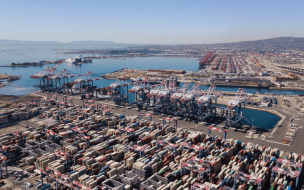What are the main features of your roles?
Vivien is the vice-president of the Net Impact Club and the director of Sustainable Business Conference (SBC). SBC is one of the most important events of our club and of HEC Paris itself. Approximately 1200 participants, including CEOs, Executives, professors, and students of all over the world will gather together to think and discuss how to create sustainable businesses.
Shohei is the president of the Net Impact HEC Paris Chapter. His role is to lead the club to achieve our mission: "Develop leaders who will use their skills to make a positive social, environmental, and economic impact.”
How many people are there in the Net Impact Club?
At the moment (June 30, 2012), we have 92 members registered.
What do you think are the main benefits of doing an MBA in Paris?
In general, as Paris is located in the centre of Europe, we are able to reach many important business centres of other European countries. This strength eventually provides us more opportunities to participate in many conferences or events all over Europe, and to easily collaborate with other top business schools on the continent. In addition, HEC Paris alumni counts for the 4th largest number of CEOs in fortune 500 all over the world, which greatly expands our networking opportunities.
With regards to the area of corporate responsibility and sustainable developments, as the European Union is very conscious of today’s challenges in these areas, many companies are very active in pursuing balanced growth of the triple bottom line. Paris provides us more chances to get closer to these ideas by talking with people and engaging in issues related to these topics.
The conclusion of the recent Rio environmental conference appears to have yielded very little. Is the reality that it’s almost impossible to promote a green agenda when the world is in recession?
We think it is possible. Although Rio +20 successfully issued “The future we want” and finished with an agreement about the implementation of Sustainable Development Goals (SDGs) by 2015, it is considered unsuccessful because aspirational goals and targets proposed by EU were not included. The result could be due to the lack of attendances from G8 summits but I think it is more because of the difficulty of consensus building among developed countries and developing countries.
At the same time, if we see outcomes of Rio +20 in detail, we can see that the conference actually extracted many commitments, especially from the private sector, despite current global depression. I think this fact is significant when we consider that companies are gaining more influence in global society and that it is difficult to reach an inter-governmental global consensus.
We have to recognise that there are roughly two categories of companies’ sustainable activities (green agenda in the question would be included in these sustainable activities): Activities not related to core businesses and activities related to core businesses. Activities not related to core businesses, such as corporate philanthropies or corporate donations, can be reduced during recessions. However, activities related to core businesses can be actually promoted during recessions. For instance, companies will be more proactive to increase energy efficiencies of production processes, as doing so will decrease their costs. Consumers will demand products with less costs for electrics during recessions and such changes in customer behaviour would incentivise companies toward product innovations for some industries or companies.
What would you say to those who maintain that inequality remains one of the main drivers of economic growth?
I disagree with the idea that inequality remains one of the main drivers of economic growth, although I admit that current economic growth is based on inequality. Inequality should not be left ignored because it will eventually generate instability of society and hence will endanger economic growth.
We need to construct both internal and global systems of income distribution that enables us at least to guarantee the right to life to everyone in the world, while the ideal is to diminish inequality.
We believe that companies have a strong influence in correcting inequality and ignoring the inequality – that is, ignoring their stakeholders will not provide them with sustainable growth; in the current environment, there is a huge risk of being attacked by communities they belong to or by associations, including NGOs and NPOs. Companies that integrated stakeholder benefits into their core business strategies can satisfy both economic growth and correction of inequality. We believe that such strategies will soon become standard.
Would big transfer payments from Germany to Southern Europe be enough to convince investors that Europe had become a safe bet?
While other European countries such as France are also expending money to save countries in crisis through the European Union, Germany is the absolute economic centre of the EU and it has the largest influence on EU decisions related to the current European credit crisis.
While their decisions and expenses may get investors to settle down in the short term, we are not sure if that is the case for the long term. Structural problems of the EU, such as the responsibility of fiscal policy is still located in each member country, or unfavourable situations of fundamental economies and political instabilities of Greece and other southern European countries remain unchanged. Unless these underlying issues are solved, uncertainty would remain.
In the current environment, why would investments in charitable/non-profit organizations be more effective than channelling these funds straight into government expenditure?
Whether investments are effective or not, depends on which organisations are invested in. There could be several reasons that justify the effectiveness of investments in NPOs. Generally NPOs are considered to know more about actual situations in situ and therefore can tackle the problems quicker and more effectively than governments do.
In addition, the current environment is unprecedentedly supportive of NPOs. More and more people (and hence talents) are interested in working for NPOs. The number of donations, which normally are the best way to secure financing for many NPOs, is increasing all over the world due to developing IT and changes in people’s mind-sets. Organisations that support activities of NPOs are also emerging all over the world. Net Impact, for instance, is one of the organisations that enable NPOs to raise funds and recruit talents.
However, we believe that it is still necessary for NPOs to cooperate with governments and companies who have the authority and capability to make NPOs’ activities more effective and sustainable.
RECAPTHA :
b1
be
e9
97







